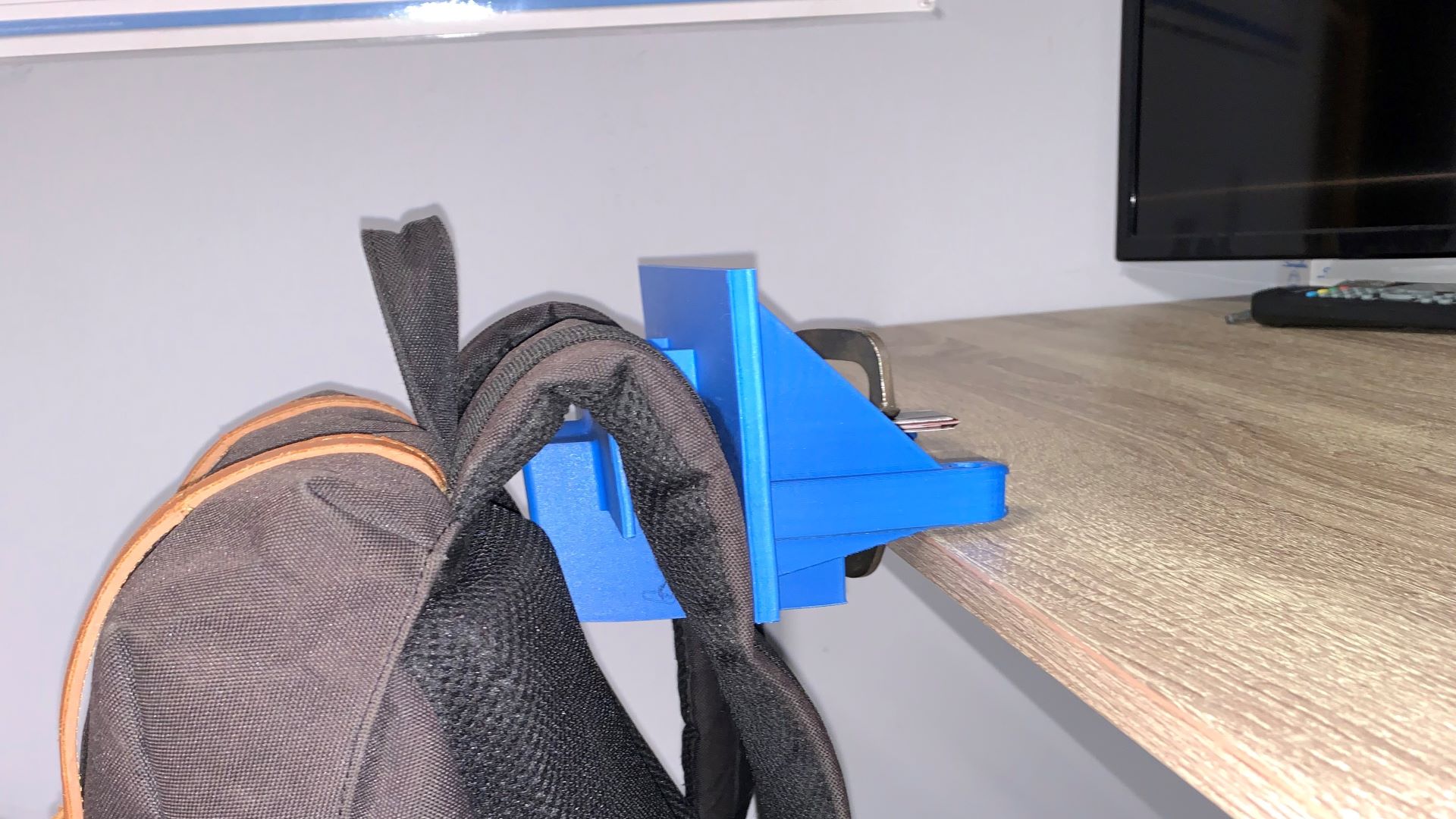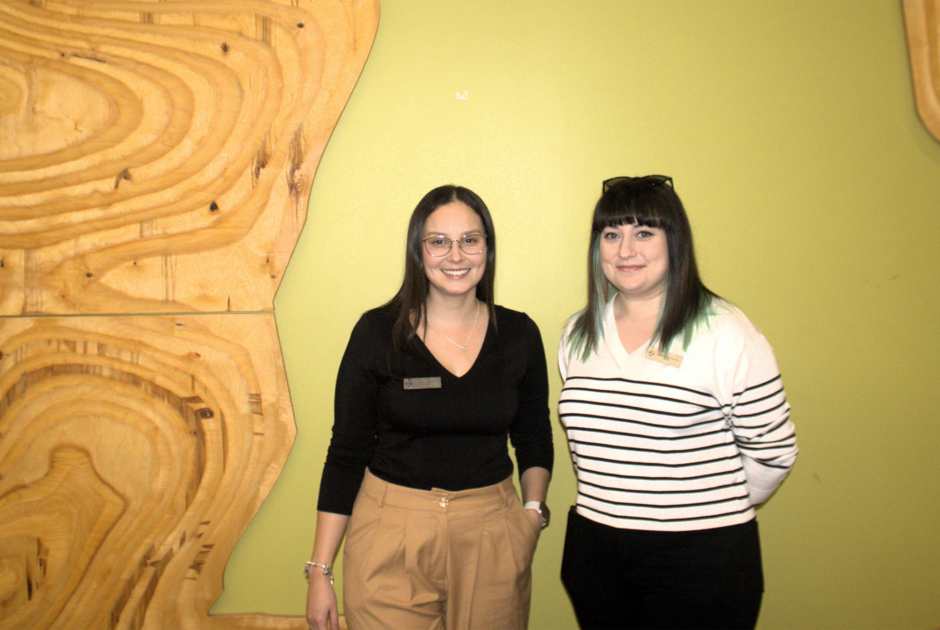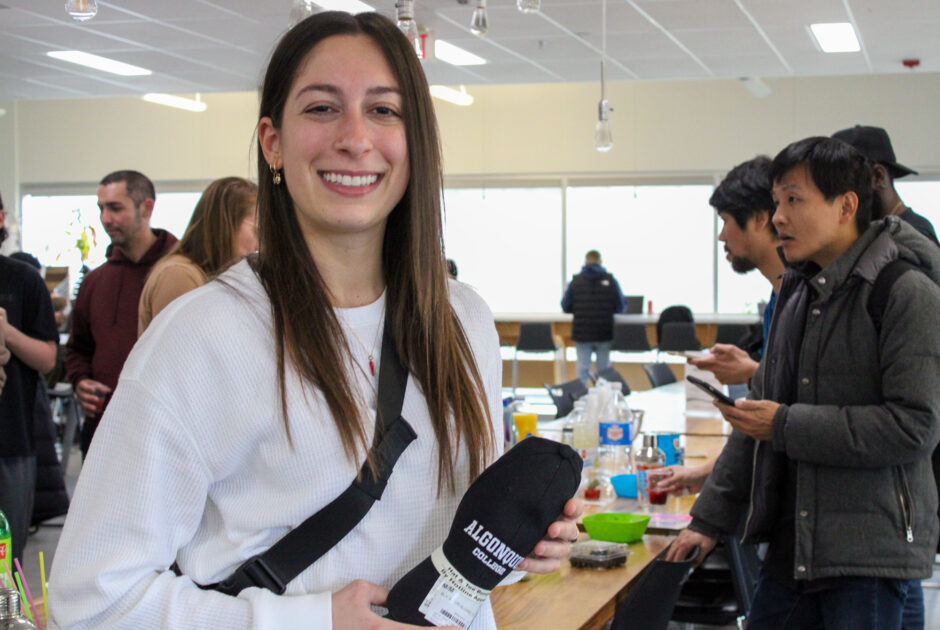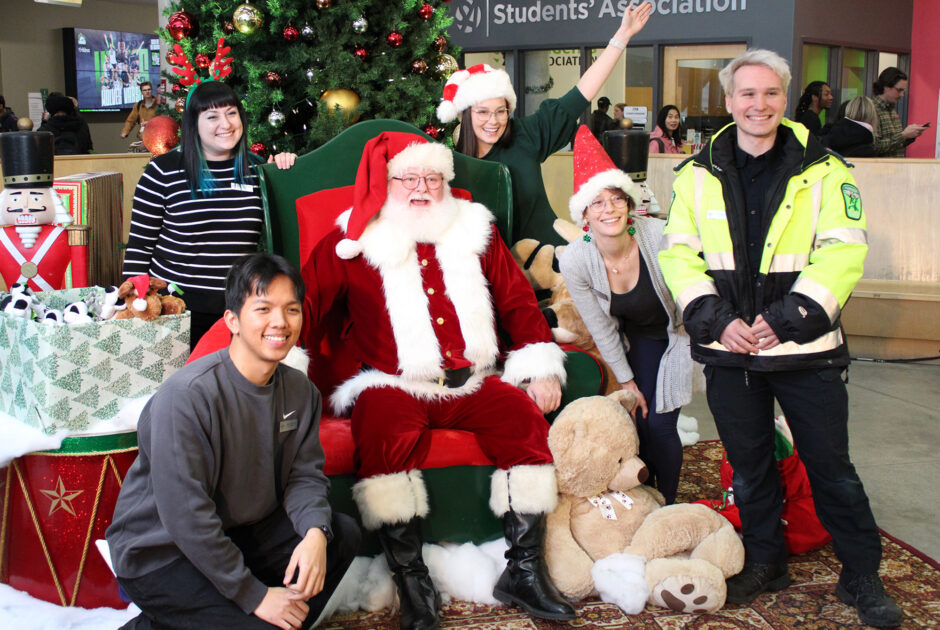A wheelchair backpack transfer device designed by Algonquin College students

A project sponsored by Algonquin College and the Tetra Society of North America, based in Vancouver, will help those with disabilities reach their backpack or bag.
Jackson Gourgeon is the team leader of the project called Accessibility at Forefront of Wheelchair Backpack Transfer Device.
The prototype device has been designed by mechanical and electrical engineering technology students at Algonquin College and is currently in its final stage of development.
“The design is a little too complicated to make it out of metal like aluminum or steel, so 3D printing allows us to create complex structures of shapes a lot cheaper,” Gourgeon said.
The process of designing and creating the device started at the beginning of October 2021.
“They gave us the scope of what we needed to do, and our scope was to design a backpack transfer device for the wheelchair mostly to be universal on all wheelchairs and to be as compact as possible so it doesn’t affect the surroundings or the other objects in the room,” Gourgeon said.
The device has a unique track design that runs across the back of the wheelchair and connects to either the left or right armrest using a joystick that controls the motor via a Bluetooth chip and is small enough to not bother the user while holding up to 30 pounds.
The project is financed in part by Algonquin College, matching the initial budget of $500 proposed by the Tetra Society of North America.
“We are very happy with the design so far and you might be able to see an actual production model when this project is passed to next year’s level six mechanical engineer task, and they can refine the design a little more and set up the support system to connect it to the wheelchair,” Gougeon said.
A device like this may not be seen as a game-changing feature to some at first glance, but to those that have been injured or disabled, this means a lot in terms of how they handle their everyday life. This is only one example of the work that has to be done to make the lives of people with health problems easier.
The project was initially intended to be presented at the RE/ACTION Showcase on Friday, April 8 of the current year, but other projects made it to the final five.








